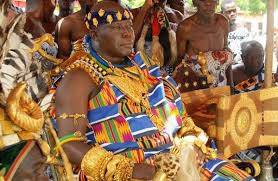Introduction:
The Ashanti Kingdom, located in modern-day Ghana, stands as one of Africa’s most influential and enduring empires. This article delves into the rich history, cultural achievements, and political prowess that defined the Ashanti people and their kingdom.
1. Origins and Early Development:
• Founding Myths: According to legend, the Ashanti Kingdom was founded by King Osei Tutu in the late 17th century, uniting several Akan states through alliances and military prowess.
• Territorial Expansion: Through strategic alliances and military campaigns, the Ashanti expanded their influence across the central region of present-day Ghana, establishing a centralized state with Kumasi as its capital.
2. Political Structure and Governance:
• Monarchical System: The Ashanti Kingdom was ruled by a powerful monarch, the Asantehene, who held both political and spiritual authority.
• Council of Elders: Advised by a council of elders (the Amanhene), the Asantehene governed with the support of chiefs and local leaders from various provinces.
3. Cultural and Social Life:
• Religious Beliefs: The Ashanti practiced traditional Akan religion, worshiping a pantheon of deities and ancestors.
• Art and Craftsmanship: Renowned for their skilled craftsmanship, the Ashanti excelled in weaving, pottery, metalwork, and wood carving, producing intricate gold ornaments and Kente cloth.
• Social Structure: Society was organized into clans and lineages, with strict hierarchies based on age, gender, and status.
4. Economic Power and Trade:
• Gold Trade: The Ashanti Kingdom thrived on the gold trade, controlling major gold mines and establishing lucrative trade routes with European merchants.
• Slavery: Like other West African kingdoms, the Ashanti participated in the transatlantic slave trade, exchanging captives for firearms and other goods.
5. Conflict and Colonial Encounters:
• Wars and Expansion: The Ashanti engaged in frequent conflicts with neighboring states and European powers, including the British, who sought to control the lucrative trade routes and resources.
• Anglo-Ashanti Wars: The series of conflicts with the British, particularly in the 19th century, challenged Ashanti sovereignty and led to the eventual incorporation of the kingdom into the British Gold Coast colony.
6. Legacy and Cultural Impact:
• Resilience and Identity: Despite colonial disruptions, the Ashanti Kingdom maintained its cultural identity and traditions, influencing modern Ghanaian society.
• Symbolism: The Golden Stool, believed to house the soul of the Ashanti people, remains a potent symbol of unity and resistance.
Conclusion:
The Ashanti Kingdom’s legacy as a powerhouse of West African culture, governance, and economic prowess endures to this day. Its achievements in art, warfare, and diplomacy continue to inspire and shape Ghana’s rich cultural tapestry, reinforcing its historical significance in the annals of African history.
This article provides a comprehensive overview of the Ashanti Kingdom, highlighting its origins, political structure, cultural achievements, economic activities, encounters with colonial powers, and enduring legacy. Adjustments can be made to focus on specific aspects or recent scholarly insights as needed.




No comments yet
Be the first to share your thoughts!